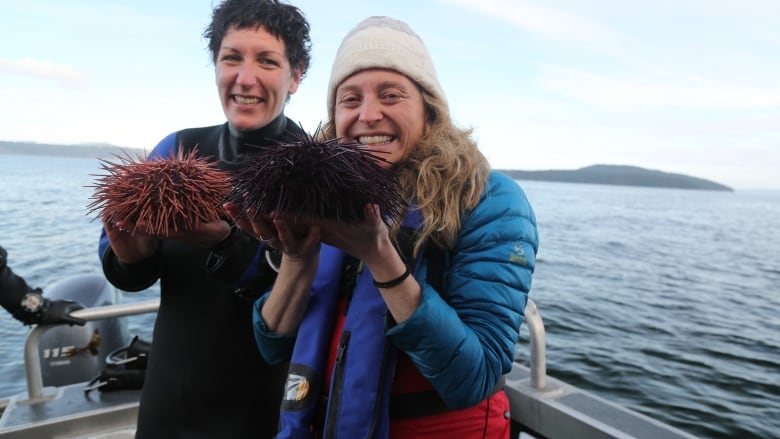Documentary explores challenges faced by Canadian women scientists
'People thought that she didnt look like a scientist because she was female'

When Brandy Yanchykrealized that few of the women she knew were scientists, she decided to investigate.
What the filmmaker discovered is that while plenty of women enter careers in science, many leave because of roadblocks and challenges, as illustrated in Ms. Scientist, a documentary film directed and produced by Yanchyk.
"I wanted find out what their reality was. Were they reaching the top? Were they doing well?"YanchyktoldNorth by Northwesthost SherylMacKay.
Ms. Scientist follows several women working in B.C., Alberta, Ontario and northern parts of Canada, who have thrown themselves into the world of science.
"But many of them were not reaching the top they were not getting the top research positions at universities or in the high academic positions, because there were barriers in their way," saidYanchyk.

According to Statistics Canada, women represent 22 per cent of the workforce in science, technology, engineering and mathematics (STEM) fields.
The women inMs. Scientisthave risen high in their fields, but their testimonies touch ondifficulties they faced, including sexism, harassment and wanting to start families.
"The biggest barrier really was that when they left to go and have a family, they took themselves out of the pot when it came to applying for grants," saidYanchyk.
More challenges
Anne Salomon, one of the scientists in the film, is a successful applied marine ecologist and professor.
But early in her career, she was sexually harassed by the head scientist of an organization she was researching for, according to the film.She reported the harassment, and he was eventually let go.
Jackie Dawson, an arctic scientist in the film, said people would challenge her and ask whether her research was accurate.Dawsonnoticed that her male counterpart's research would not be questioned.
"There was this unconscious bias," saidYanchyk. "People thought that shedidn't look like a scientist because she was female."

Yanchykhopes Ms. Scientist will get people talking about women in STEM careers, and how changes can be made to ensure they are not fighting to be treated equally, or losing out on career opportunities in order to take time to raise children.
"I'm sure that this will spark a debate in many different ways Things have to change, and things are changing."
Ms. Scientist is available online and airs onCBCTelevision tonight at 7 p.m. as part of the Absolutely Canadian film series.
Listen to the full interview:
With files fromNorth by Northwest












_(720p).jpg)


 OFFICIAL HD MUSIC VIDEO.jpg)
.jpg)



























































































